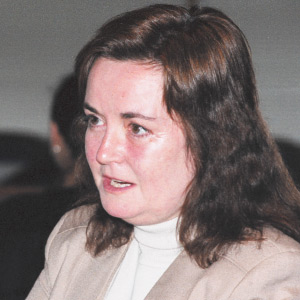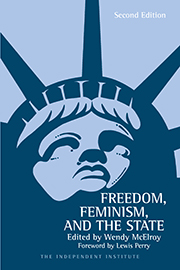The legal and moral travesty that is the Duke ‘rape’ case is winding down. The aftermath is commencing...but what will it look like?
Two widely different developments from last week provide an indication.
The travesty: Three ‘rich’ white Duke University students (the Duke 3) were falsely accused of raping a working-class black woman. The rape charge was dropped on Dec. 22 in the wake of revelation that the prosecuting District Attorney Mike Nifong had conspired to suppress DNA evidence that would have cleared the defendants.
Two felony charges remain but those are unlikely to last the month.
The motive behind indicting and prosecuting the “Duke 3” has been widely ascribed to Nifong’s need to woo the black working-class vote in order to win election to office, which he did. The beginning and middle were political. So, too, is the end.
Nifong is under an ethics investigation by the North Carolina Bar Association for his handling of the case.
According to several state legislators, when the General Assembly reconvenes at the end of the month, Nifong’s prosecutorial misconduct and the need for new law regarding D.A.s and prosecutions could top the agenda. In short, there is no longer a political advantage to Nifong’s pressing forward and no political capital to do so.
The aftermath: Nifong is now trying to orchestrate the fall-out as surely as he created the injustice. After his swearing-in ceremony as D.A. on January 2nd, Nifong declared, “Durham has some healing to do. And I need to be part of that healing process.”
But Nifong cannot recast himself as ‘healer’; his only proper role in the aftermath is to apologize and offer restitution, including his resignation. That won’t happen. At the same moment he spoke of healing, Nifong added, “I don’t feel that I’m part of the problem [of the Duke case].”
The aftermath rightfully belongs to the true victims, to those who have been falsely accused and reviled.
Last Thursday, in a small move that foreshadows future events, the victims began to define the aftermath. Former Duke Lacrosse player Kyle Dowd and his parents filed the first lawsuit against Duke University.
To many observers, Duke has acted disgracefully toward the accused students. Duke seemed to be on a crusade against the entire Lacrosse team, largely because the alleged rape occurred at an off-campus team party.
Dowd was not one of the Duke 3. Nevertheless, he claims to have been penalized by the university’s demonization of the entire Lacrosse team and it’s refusal to protect its own students against on-campus attacks.
The specific claims involve Kim Curtis, a visiting assistant professor who has taught at Duke for 10 years and is named as a co-plaintiff in the civil suit.
Dowd and another non-inducted Lacrosse player were enrolled in Curtis’ “Politics and Literature” class. Grading was based on three papers plus class participation, each of which accounted for 25 percent of the total. At first, both players were passing the course, with Dowd receiving a C+ and a C- on his first two papers. (As a student overall, Dowd had a grade point average of approximately 3.4 on a 4.0 scale, with the C- being his lowest grade.)
Then the Duke 3 were indicted.
Curtis joined what has become infamously known as “the Group of 88”—88 faculty members who signed a full-page advertisement in Duke’s student newspaper. The ad was entitled “What Does a Social Disaster Sound Like?” and stated, “Regardless of the results of the police investigation, what is apparent everyday now is the anger and fear of many students who know themselves to be objects of racism and sexism.”
The 88 linked their political outrage and condemnation to a specific criminal accusation; thus, the ad virtually convicted the Duke 3 of rape. It congratulated students on their anger “regardless of the results of the police investigation” and, so, sanctioned the posters then being tacked up on campus with photos of Lacrosse players over the word “rapist.”
University officials did not rein in the 88; faculty members have neither apologized for nor withdrawn their statements.
Dowd and the other Lacrosser player became the only students in Curtis’ class to receive an overall “F.” The grade meant Dowd could not graduate in May and would lose a job scheduled for July.
On May 6, Dowd emailed the faculty person responsible for grade appeals and received the response: “There are no grade appeals. The instructors assign grades, and that is all there is to it.”
Later, Dowd was allowed to apply earlier credits and, so, graduate with the “F” on his record. Still later, the “F” was corrected to a “D,” with Duke citing a “calculation error” in the original grade.
Dowd and his parents do not accept that explanation. They are suing Duke for breach of contract and unjust enrichment. They are suing Duke and Ms. Curtis jointly for fraud, negligent misrepresentation, and the intentional infliction of emotional distress.
Elements of Dowd’s suit will probably become common themes in the various legal actions to come. First, the suits will be brought by emotionally-charged plaintiffs who are unwilling to compromise.
Second, defendants will not apologize. Instead, they will maneuver. The Group of 88 advertisement has disappeared from the university’s archives. The two Duke 3 students who did not graduate have been quietly invited back to attend Duke as though nothing has happened. Dowd graduated.
Third, behind-the-scene changes of policy will occur. Nifong is now restrained and the role of D.A. in North Carolina is being reconsidered. Duke is almost certainly reviewing its internal policies; the dynamic between university officials, faculty members and students will shift on campuses across North America.
Those victimized by the vigilante justice that has characterized the Duke travesty want their reputations back. Healing and restitution require three words that are next to impossible for those in political or academic power to pronounce: “I was wrong.”









